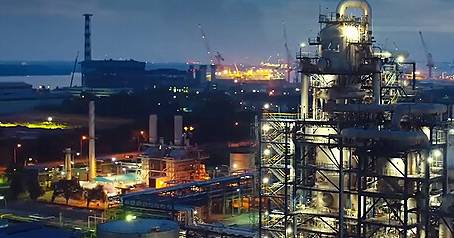Dek . 21, 2024 13:51 Back to list
Understanding the Benefits and Applications of HDPE Polyethylene Pipes in Modern Construction
The Versatility and Benefits of HDPE Poly Pipe
High-Density Polyethylene (HDPE) pipe has established itself as one of the most durable and versatile piping materials available in the market today. With a unique blend of strength, flexibility, and resistance to various environmental factors, HDPE pipes are widely utilized in many applications, from municipal water systems to agricultural irrigation. This article explores the properties, benefits, and uses of HDPE poly pipe, highlighting why it has become a preferred choice in various industries.
Understanding HDPE Pipe
HDPE is made from petroleum, and its production involves a polymerization process that results in a material characterized by high molecular weight. This high density contributes to the pipe's remarkable strength while allowing for a lightweight design that simplifies installation. HDPE pipes are produced in various diameters and thicknesses, making them adaptable for numerous applications, including water distribution, sewage systems, and even industrial drainage.
Key Properties of HDPE Poly Pipe
1. Durability One of the standout features of HDPE pipe is its long lifespan. Unlike traditional materials such as PVC or metal, HDPE is resistant to corrosion, chemicals, and UV radiation. This durability ensures that the pipes can withstand harsh environmental conditions without degrading, which is particularly crucial for applications in agricultural or industrial settings.
2. Flexibility HDPE pipes possess excellent flexibility, allowing them to bend without breaking. This characteristic is especially beneficial in applications where the pipe needs to navigate through uneven terrain or adapt to shifting ground conditions.
3. Low Friction Loss The interior surface of HDPE pipes is smooth, which significantly reduces friction loss during fluid flow. This feature enhances the efficiency of water conveyance systems, leading to lower energy costs and improved overall system performance.
4. Sustainability In today's eco-conscious world, the sustainability of materials is of paramount importance. HDPE is 100% recyclable, and the production process emits fewer greenhouse gases compared to other pipe materials. This eco-friendly aspect makes HDPE an excellent choice for environmentally responsible projects.
Benefits of Using HDPE Poly Pipe
The use of HDPE pipe comes with numerous benefits that make it an attractive option for a range of applications
hdpe poly pipe

- Cost-Effectiveness While the initial investment in HDPE pipe may be slightly higher than traditional materials, the long lifespan and minimal maintenance requirements result in lower total ownership costs. Additionally, the ease of installation can reduce labor expenses.
- Resistance to Leaks HDPE pipes can be fused together, forming a continuous, leak-free system. This fusing technique eliminates joints and potential leak points commonly found in other piping systems, enhancing the reliability of water and gas transportation.
- Adaptability HDPE pipe can be used in various settings, including residential, commercial, and agricultural. Its applications range from water supply lines and natural gas distribution to stormwater drainage systems and irrigation setups. This adaptability makes it a ubiquitous choice in construction and infrastructure projects.
Applications of HDPE Poly Pipe
1. Water Supply Systems HDPE pipes are extensively used in municipal water supply systems due to their durability and resistance to corrosion. They ensure the efficient transport of potable water over long distances.
2. Agricultural Irrigation The flexibility and lightweight nature of HDPE make it ideal for drip and sprinkler irrigation systems, promoting optimal water usage in agriculture while reducing wastage.
3. Sewage and Drainage HDPE pipes are a go-to solution for sewage systems, as they can handle the pressure of wastewater without fear of corrosion. They are also widely used in stormwater drainage systems, assisting in effective water management.
4. Industrial Applications In industrial settings, HDPE pipes are used for transporting chemicals and hazardous materials, owing to their chemical resistance and ability to maintain structural integrity under pressure.
Conclusion
HDPE poly pipe has proven to be a game-changer across multiple industries, providing an efficient, durable, and sustainable solution for various piping needs. Its advantageous properties, including flexibility, resistance to corrosion, and ease of installation, make it a top choice for engineers and project managers. As industries continue to evolve and demand more sustainable materials, HDPE is likely to remain at the forefront of piping technology, contributing to modern infrastructure development and resource management. Whether for water supply, agriculture, or industrial applications, HDPE poly pipe is a reliable choice that promises efficiency and longevity.
-
Durable PP Rigid Sheet: Lightweight, Chemical Resistant Solutions
NewsAug.21,2025
-
PVC Grey Sheet for Extraction: Chemical Resistant & Durable
NewsAug.19,2025
-
Durable PVC Pipe Fittings for Plumbing & Irrigation Needs
NewsAug.18,2025
-
HDPE Steel Belt Reinforced Spiral Corrugated Pipe | High Strength
NewsAug.17,2025
-
HDPE Pipe Fittings: Durable, Leak-Proof Solutions
NewsAug.16,2025
-
Premium CPVC Sheet: High-Temp & Chemical Resistant Solutions
NewsAug.15,2025

